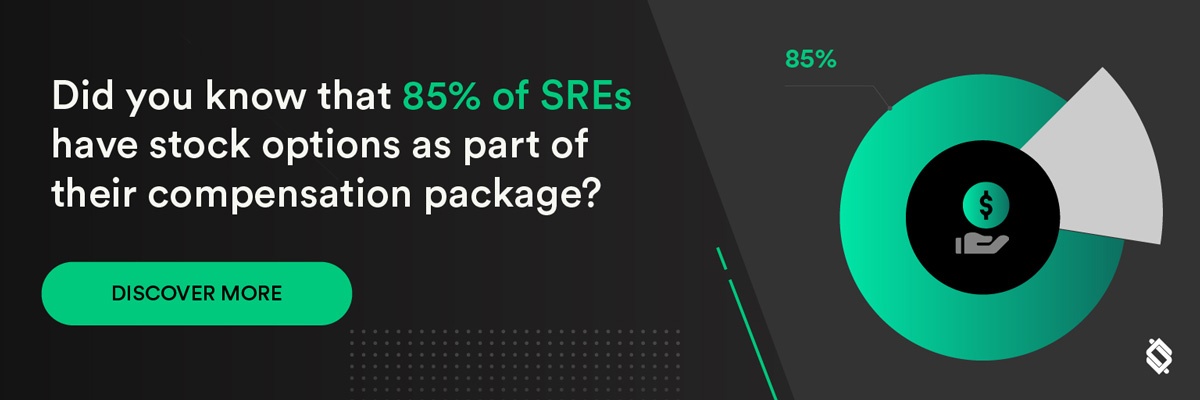The acceleration of digital transformation has enabled more and more companies to adopt digital technologies, thus expanding the opportunities for DevOps/SRE roles across almost all industries. But even as companies compete for top professionals, how you perform during your interview will help secure you the job.
One of the most important messages we tell our candidates is this: Interviewing is hard. Whether you’re a graduate seeking your first role; a seasoned Engineer conducting your hundredth technical interview; or someone in between, interviewing is a tricky field to navigate.
Any interview process feels like you are walking on a minefield of potential hazards. You want to show you are interested in the role but not desperate. You want to be well compensated but don’t want to show your hand too early. You want to show you’re an easy-going, highly communicative team player but that you’re also driven and capable of autonomy.
To help you out, we brought together our entire team of recruiters and asked them to share their insights on what makes or breaks an interview.
Here are our tips on what to do and what NOT to do during DevOps/SRE interviews.
Be Presentable: Whether on a Zoom call or in person, act as though you are meeting a high-profile client. Dress smart (but comfortable), and make sure your background is clean and as free from distractions as possible.
Be Punctual: Don’t just be on time – be early! It’s always best to arrive 15 minutes ahead of your interview. Firstly, it makes a good impression. Secondly, it lets you settle in and make sure you are ready for whatever the interview may entail. For example, setting yourself up on an online coding platform in advance or making sure you have the video conferencing platform installed.
Be Prepared: Research, research, research! The interviewer, the company, the role. Prior planning and research on these areas show a keen interest and help you find areas of synergy between your background and the position you are interviewing for. In particular, consult the job description or your recruiting partner on the hard/soft skills required.
Be Polite: As the phrase goes, “Manners Cost Nothing.” Be polite and kind to everyone you speak with, from the receptionist to recruiter to hiring manager. First and last impressions count for everything!
Be Probing: Ask questions! It’s as much of an interview of them as it is of you. Prepare plenty of questions to highlight any critical concerns or thoughts you have on the role or company. It’s best to do this in advance, so you don’t come off the call wishing you had asked something you forgot to mention.
Be Personable: You may well be speaking to your future colleagues – so it’s best to build rapport from the get-go! Try to avoid generic small talk. Instead, look for meaningful points of connection – again, prior preparation can help with this.
Be Prudent: Although anonymous company review platforms can be helpful, more often than not, they represent a limited perspective on a company and its culture and therefore should be taken with “a pinch of salt.” Also, make sure never to post any confidential information, i.e., offers and compensation details.
Be Professional: It can be easy to fall into the trap of talking negatively about a previous manager or company. Being constructively critical about a former workplace can help a potential employer know why you’re looking for a new role, but being excessive and personal in your criticism can harm your chances of landing the new position.

Be Panicked: Interviews are daunting. Whether it’s a tricky coding problem, hard-hitting questions on your personality, or a complex case study around Systems Design, it can be easy to get flustered. However, the interviewer is there to support you, and admitting you need help is far better than panicking and letting the interview spiral out of control, which takes us to the next point.
Be Perfidious: It’s easy to lie in an interview, from a small white lie about some past experience to failing to admit that you are lost on a coding challenge. However, lies will always catch up with you, be it in the interview or later in the job itself. It’s always best to be upfront about what you know and what you don’t.
Be Polarized: It’s OK to hold a certain point of view. In fact, it’s great to have opinions on what tools you may like or dislike or your definition of what “DevOps” really is. However, this does not mean you should treat others who disagree with you as wrong. Hold an opinion, but be mindful that others may not share the same ideas.
Be Patronizing: Sometimes, interviewers need to ask simple questions. You may feel a question is beneath your experience level. Still, often the interviewer simply has to check the base requirements or understand how you would interact with a junior team member. You would be surprised how many people fail on these essential points, so be pleased when they ask you something simple!
However common sense some of these practices may seem, we assure you – these DevOps interview tips make the difference. When you come out of your following interview for a DevOps/SRE role, the chances are that you may feel like you haven’t ticked every single box on this list, and that’s OK. As long as you identify (through the help of feedback if available) where you are going wrong and look to improve with each interview, it won’t be long before you stand apart from the 90%. And as for the last 10%? Well, we’ll leave that to you.




